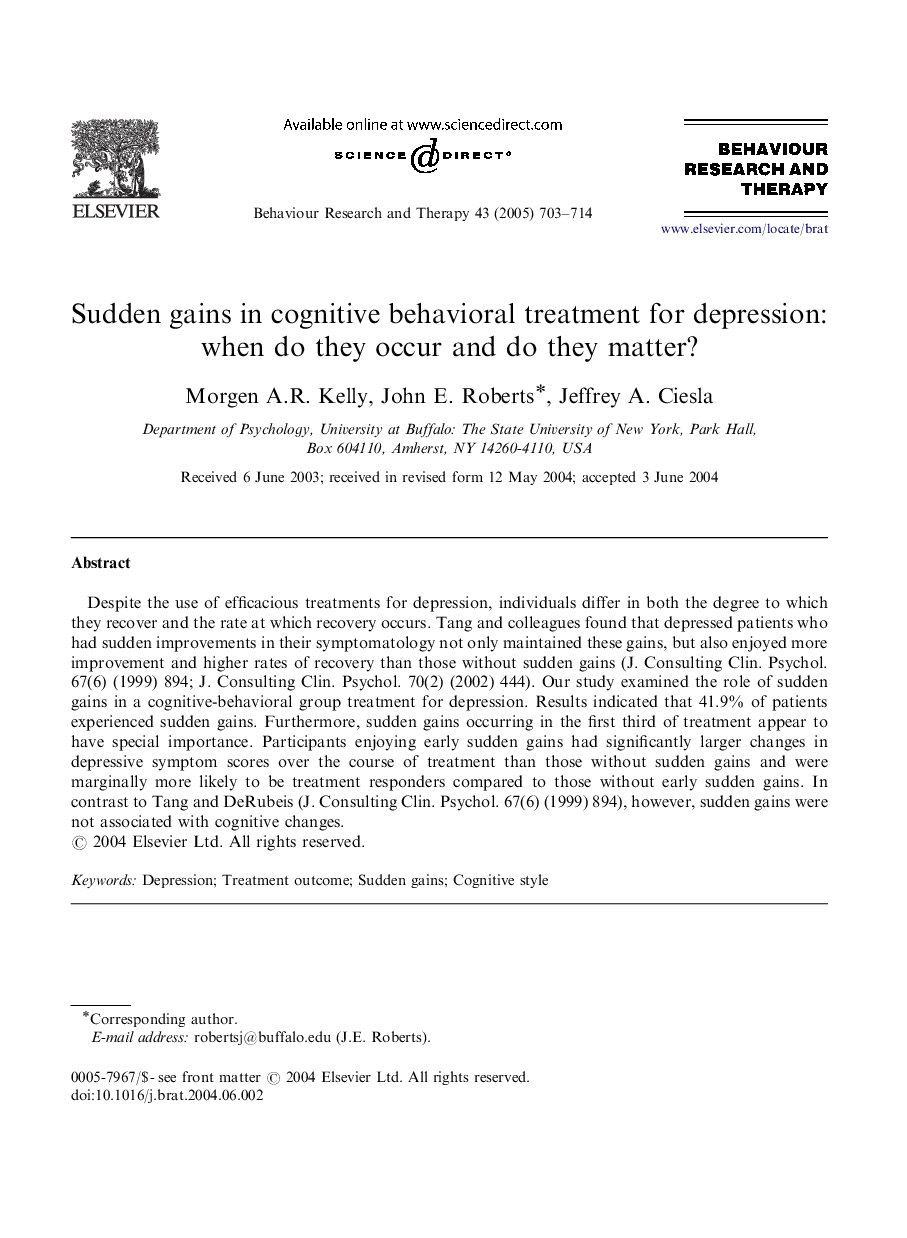| Article ID | Journal | Published Year | Pages | File Type |
|---|---|---|---|---|
| 10445247 | Behaviour Research and Therapy | 2005 | 12 Pages |
Abstract
Despite the use of efficacious treatments for depression, individuals differ in both the degree to which they recover and the rate at which recovery occurs. Tang and colleagues found that depressed patients who had sudden improvements in their symptomatology not only maintained these gains, but also enjoyed more improvement and higher rates of recovery than those without sudden gains (J. Consulting Clin. Psychol. 67(6) (1999) 894; J. Consulting Clin. Psychol. 70(2) (2002) 444). Our study examined the role of sudden gains in a cognitive-behavioral group treatment for depression. Results indicated that 41.9% of patients experienced sudden gains. Furthermore, sudden gains occurring in the first third of treatment appear to have special importance. Participants enjoying early sudden gains had significantly larger changes in depressive symptom scores over the course of treatment than those without sudden gains and were marginally more likely to be treatment responders compared to those without early sudden gains. In contrast to Tang and DeRubeis (J. Consulting Clin. Psychol. 67(6) (1999) 894), however, sudden gains were not associated with cognitive changes.
Related Topics
Health Sciences
Medicine and Dentistry
Psychiatry and Mental Health
Authors
Morgen A.R. Kelly, John E. Roberts, Jeffrey A. Ciesla,
